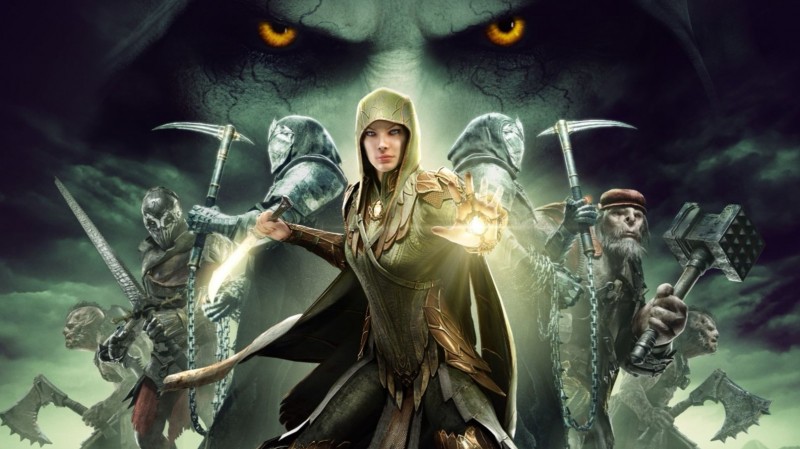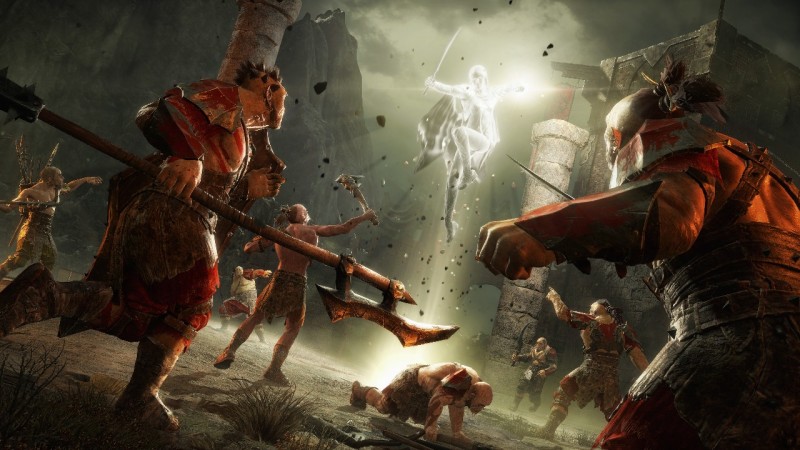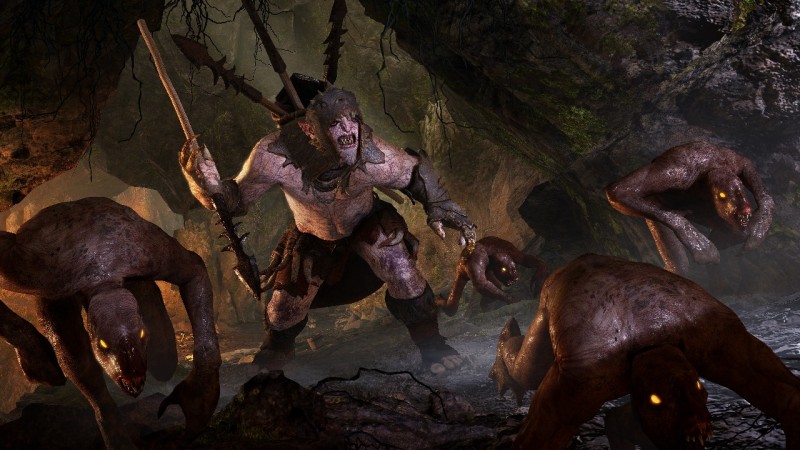Should You Play Shadow Of War: Blade of Galadriel?

Middle-earth: Shadow of War has been rolling out smaller patches and content drops at a slow but regular pace since the game’s launch back in September. But last week saw the first major expansion for the game finally arrive; Blade of Galadriel offers a new playable character with her own suite of special powers, and she fights her way through a dedicated campaign that moves the broader narrative forward.
I completed a thorough playthrough of the brief campaign in recent days, in the hopes of helping you decide if it’s worth your time – especially if you’ve already moved on to other gaming projects since the game’s launch window.
The short answer to whether you should play? Blade of Galadriel offers a few fun new twists on combat and the next step in the storyline, but it loses many of the system-based choices that helped the original game shine. This is an expansion for dedicated enthusiasts of the base game, eager for a chance to return to Mordor, but even they will miss the presence of important elements that defined the core release. Read below to understand what I mean.
Needless to say, some of the article below includes spoilers for the main campaign of Shadow of War, but avoids spoilers for the new Blade of Galadriel campaign.

The Power Of The Light
The core game of Shadow of War offered a conclusion regarding the fate of Sauron, Celebrimbor, and Talion, but then launched a separate “Shadow Wars” experience that allowed players to continue conquering and defending fortresses, albeit with a very changed version of Talion. Blade of Galadriel picks up in the fateful moments following when Sauron and Celebrimbor come together, and the New Ring of Power tumbles away.
As this expansion campaign begins, Eltariel takes up the New Ring, with the goal of continuing the fight against the forces of Mordor. With this artifact upon her hand, she wields many of the same powers that Talion commanded, but her unique elven heritage and the light gifted to her by Galadriel offer some new twists.
Almost every one of Eltariel’s new powers stem from the idea of light. She can aim a beam of light to blind her foes, and then ignite them. She can detonate a burst of light that suffuses all nearby foes. And if she can get out of combat for a few precious seconds, she can infuse light into herself to heal from even the most grievous wounds.
Eltariel starts the campaign with a selection of the most useful abilities you acquired while playing as Talion, but a couple of new rows of powers and related upgrades provide something to spend newly acquired skill points on. I enjoyed playing with some new tools in my battle arsenal, and blasting orcs with disintegrating rays of light. However, too many of the powers are similar to one another, and start to blend together.
That singular focus on light is a problem that extends to equipped weapons, armor, and gems. Eltariel can only acquire yellow light gems, rather than the multitude of gem types that were available to Talion. As such, there’s less of a sense that you’re customizing your hero in meaningful ways.
Likewise, where Talion had an array of powers that could be used to poison, set fire to, or freeze his foes (among other effects), all of Eltariel’s innate powers are focused on light. To successfully leverage particular weaknesses in the orcs you encounter as Eltariel, it’s instead necessary to pursue several sets of legendary armor and weapons scattered throughout the campaign. By the time you have meaningful tools to take on any enemy, it’s likely that you’re done with the campaign, and that’s disappointing.
Despite that poorly incentivized equipment chase, I did find a lot of joy in returning to the rhythmic and counter-focused combat of Shadow of War. Eltariel uses most of the same tricks as Talion, but having some new abilities encourages a slightly different approach to big fights, and I think fellow fans of this combat system will enjoy the variation.

A Different Approach
Unlike Talion, there are lines that Eltariel will not cross in her wielding of the New Ring. Thematically and narratively, that choice manifests as an unwillingness to dominate her orc opponents. Instead, significant chunks of this brief campaign find the elven assassin attempting to partner with and recruit orcs out of a sense of mutual need.
Some of the orc characters you meet and ally with are interesting; the Bow of Morgoth character is especially intriguing for Tolkien fans. However, as much as the absence of domination might fit with the Eltariel character, the campaign suffers by stripping out such a core system. Without it, the Nemesis system that anchors Shadow of War slips into irrelevance; I never once felt compelled to look at the Army screen or consider how to best control a region.
Instead, the campaign feels like a classically linear set of missions. Instead of strategizing how to best prepare for your assault on Seregost, for instance, Eltariel’s path to that region is relatively rigid.
The advantage of that approach is a more crafted narrative flow from beginning to end. We learn about Eltariel’s shifting alliance with Talion. We witness Eltariel’s conflicted relationship with Galadriel. We even face a new allied pair of ringwraith bosses and learn their backstory. I appreciate the attempt at a standalone story about Eltariel’s struggles, but stripped of its more systemic elements, the Shadow of War formula doesn’t work nearly as well.
Haven’t We Been Here Before?
Shadow of War took significant strides to improve on the visual distinctiveness of its predecessor, Shadow of Mordor. Gorgoroth, Seregost, and Minas Morgul (among other locales) felt very different in tone, and it was fun to take Talion to a new region and learn its nooks and crannies. Blade of Galadriel reuses all of the same regions as before, so the sense of novelty is entirely gone.
In the mostly linear story of Eltariel’s battles, players can opt to go where they want, but the most sensible route is to hammer out the tasks of any one region, and then move on to the next. You’ve leapt, climbed, and sprinted through these locales many times before in the core game, and Eltariel’s traversal is hardly different enough to feel distinct.
Moreover, other than the short series of central missions, it’s hard to feel motivated to confront other pop-up battles against captains in any given area. As it won’t really affect the outcome of a fortress conflict, why should I battle a random captain, or uncover intel about his weaknesses? Likewise, the conflict against the captains who carry Eltariel’s legendary gear lose sight of the game’s focus on unique confrontations and setups; every one of them starts as a head-on melee against the boss and his coterie – no chance for stealth, no variation in the activities those bosses are engaged in, just a sudden straight-up fight. It’s a strange design choice.

Missing Something
Despite my misgivings, Blade of Galadriel maintains a number of the features that helped me really enjoy Shadow of War. The brisk, entertaining combat system remains top-notch, providing lots of opportunities to feel like a superhero as you take down whole squads of deadly orcs and beasts. I also like having a new perspective on the story, and the ways that the developer draws contrasts between Eltariel’s use of the New Ring, and the ways that Talion did; those narrative choices drive home some of the important themes about power that weave throughout the plot. We also get something of a wrap-up to Eltariel’s character arc, although I suspect that wrap-up will prompt more questions than answers.
Nonetheless, in the drive to create a manageably sized campaign with a logical structure of upgrades, missions, and enemies to fight, Blade of Galadriel misses out on a lot of what is great in the core game. The focus on interlocking systems of upgrades, gear, battles, enemies, and fortresses has all been defanged in the effort to provide a concise but complete standalone campaign experience. Without those features, Blade of Galadriel doesn’t hold up as a satisfying extension of the core game. But as a chance to gain additional insight into this dark take on the Middle-earth universe, and to skewer some nasty orcs after a few months away from the action, the expansion still had me engaged.

Get the Game Informer Print Edition!
Explore your favorite games in premium print format, delivered to your door.
- 10 issues per year
- Only $4.80 per issue
- Full digital magazine archive access
- Since 1991









